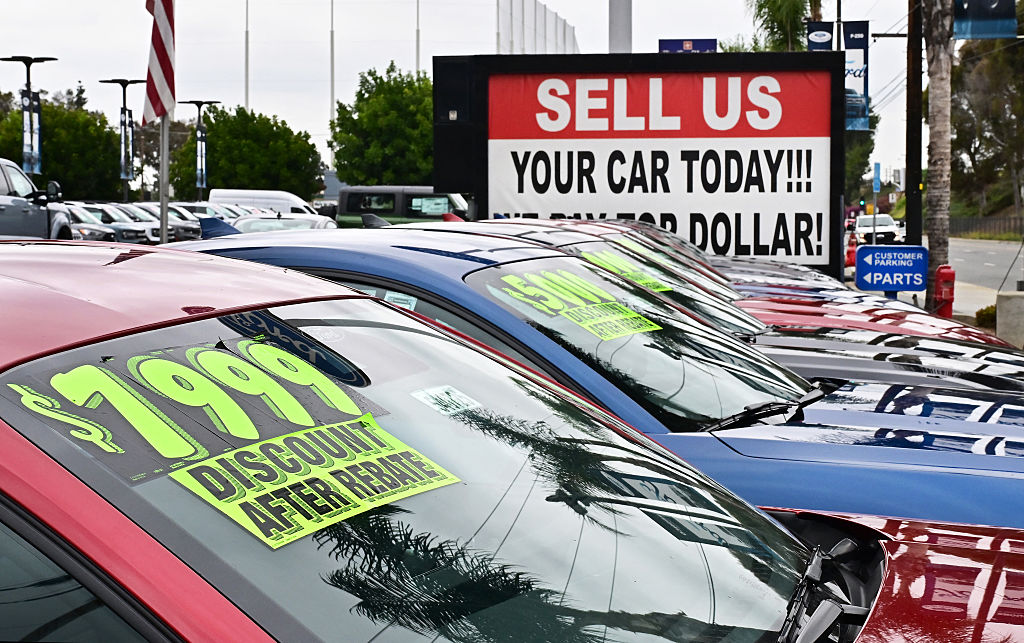Americans Are Defaulting on Car Loans at an Alarming Rate
Across the US, people are increasingly defaulting on their car loans — a dire economic indicator because these loans are usually the last payment Americans are willing to miss. Meanwhile, auto insurers are raking in record profits after hiking rates.

Unlike defaulting on a rent or a mortgage — where tenants and homeowners can have months of legal proceedings before they’re evicted — vehicles can be repossessed in a matter of days, leaving car-dependent Americans stranded. (Frederic J. Brown / AFP via Getty Images)
Across the country, people are increasingly defaulting on their car loans — a particularly dire economic indicator because car loans are usually the last payment that Americans are willing to miss.
As the economy stagnates and both cars and car insurance have become more expensive, new research from the consumer-protection-focused nonprofit Consumer Federation of America (CFA) shows that executives from top auto insurance companies are netting massive compensation packages.
The average price for a new vehicle topped a record-breaking $50,000 in September. Meanwhile, auto loan delinquency rates are at all-time highs for those with subprime credit ratings — those with credit scores below 670 — doubling since 2021 to reach 6.43 percent. The default rate is now worse than during the last three recessions: the COVID-19 pandemic, the Great Recession, and the dot-com bust.
Unlike defaulting on a rent or a mortgage — where tenants and homeowners can have months of legal proceedings before they’re evicted — vehicles can be repossessed in a matter of days, leaving car-dependent Americans stranded.
As vehicles have gotten more expensive, so has car insurance. In 2025, the average cost of a full-coverage policy is $2,638, according to Bankrate data — that’s 12 percent higher than in 2024 and over 50 percent more than in 2020.
But auto insurers are also raking in record profits and payouts. After raising rates by an average of 26 percent, with some states seeing rate increases as high as 40 percent, the industry netted a record $169 billion in profit, up 90 percent from the year before.
The Consumer Federation of America found that the top auto insurance executives netted more than $134 million in compensation last year. Berkshire Hathaway, which owns car insurer Geico, raised its auto prices by 3.7 percent in 2024 and boosted its CEO’s pay from $10 million in 2023 to $15 million in 2024. Allstate, one of the country’s biggest insurers, raised its auto insurance prices by 12.2 percent, while increasing its total executive compensation for its chairman, CEO, and president from $16.5 million to $26.1 million year-over-year
“Insurance companies told regulators they had to charge consumers billions more in 2024 to stay afloat, but customers were just paying the price for insurer greed and executive excess,” said Michael DeLong, CFA’s research and advocacy associate, in a press release.